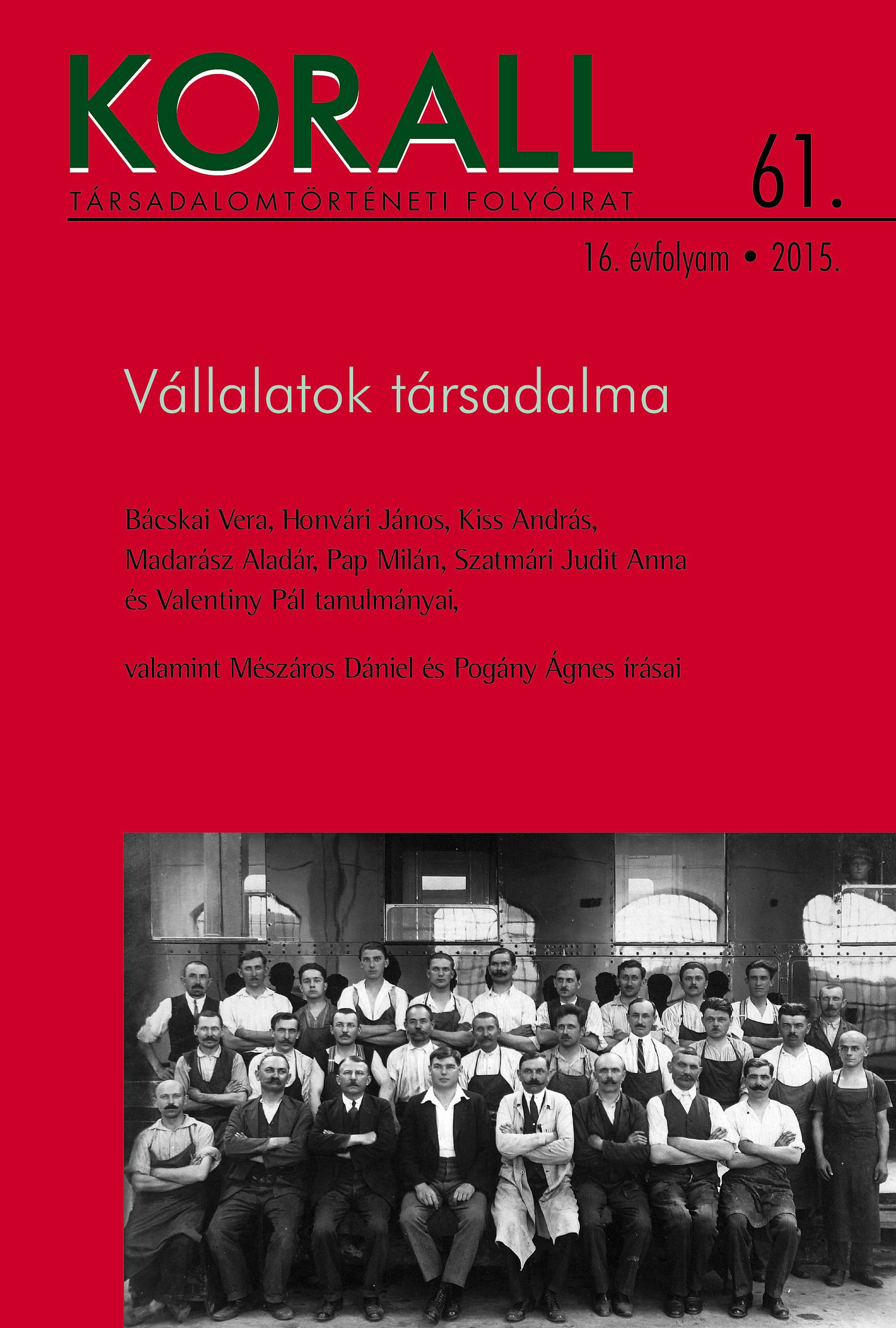Vállalkozás, vállalatelmélet, vállalattörténet - Valentiny Pál Arthur Cole, Alfred Chandler és Ronald Coase – változatok „paradigmateremtésre”
Business History, Entrepreneurial History and the Theory of the Firm: A. Cole, A. Chandler and R. Coase or Variations on Creating a Paradigm
Author(s): Aladár Madarász, Pál ValentinyiSubject(s): History
Published by: KORALL Társadalomtörténeti Egyesület
Keywords: history;
Summary/Abstract: Anglo-American and Hungarian economic historians follow different semantic patterns describing the same subjects. While the authors writing in English use three distinct terms to distinguish business history, entrepreneurship and the theory of the firm, the corresponding Hungarian words share a common root. This paper reviews the debates among the founding fathers of the discipline about the definition of the agenda and research methods of these topics both before and after World War II. The emergence of business history at Harvard Business School under the leadership of N. Gras mainly followed the German tradition of narrative historical economics. He denied any dominant role of formal economic theory and urged business historians to use several other disciplines, such as psychology and politics, too. A. Cole, the founder of the Research Center in Entrepreneurial History at Harvard, based the approach of his research group on the Schumpeterian concept of creative entrepreneur as the key figure in explaining the different issues of economic change and development. Faced with the problem of how to define entrepreneurship, the center failed to formulate a theory of economic change based on entrepreneurial activity and behaviour. In the meantime the character of the creative entrepreneur has been played down within organization and firm and was replaced by the entrepreneur co-ordinator who directs production (R. Coase) and by the middle-manager (A. Chandler). Both business history using a structuralistfunctionalist sociological approach in discussing large scale enterprises and the theory of firm based on transactions costs and economic analysis of law remain outside of the mainstream of history and economics. What they had in common was a sense of affinity for empirical data instead of pure theory. More than affinity even, it was a desire to get an insight into the “real world”.
Journal: Korall - Társadalomtörténeti folyóirat
- Issue Year: 2015
- Issue No: 61
- Page Range: 5-42
- Page Count: 38
- Language: Hungarian

